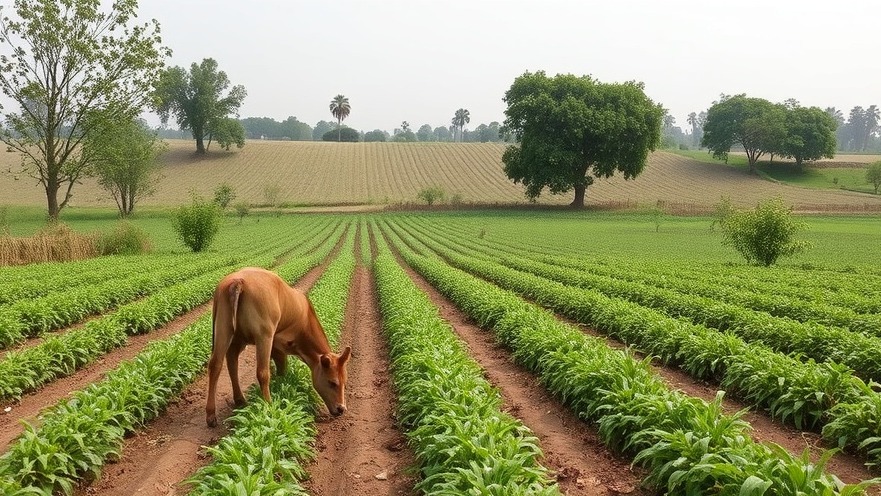
Innovative Collaborations Pioneering Agricultural Solutions
The challenges of modern agriculture can be daunting. With a growing population and limited resources, farmers face an uphill battle to produce enough food sustainably. However, a recent study published in Global Change Biology highlights how collaborative efforts across various scientific fields might be the key to tackling these pressing challenges. Researchers from the National Science Foundation's Science and Technology Centers, including Cornell University and North Carolina State University, have come together to share insights from their research involving the integration of biology, engineering, and data science.
Deepening Our Understanding Through Diverse Disciplines
As the study shows, scientific collaboration doesn't just enhance our toolkit but also transforms the nature of the questions we ask. For instance, the work of mechanical engineers and plant scientists at Cornell promoted the use of nanosensors and soft robotics for real-time monitoring of plant water status in agricultural fields. This represents a significant shift in farming technology, leveraging interdisciplinary expertise to create innovative solutions that cater to the unique needs of modern agriculture.
Revolutionizing Fertilizer Use and Water Management
Another fascinating insight from the study comes from the focus on phosphorus sustainability. Researchers at the STEPS Center are exploring new methods for fertilizer innovations and phosphorus recovery systems. These advancements aim to optimize nutrient use efficiently, thereby reducing the negative environmental impacts commonly associated with traditional farming practices.
The Role of Stakeholders in Agricultural Innovation
This collaborative approach also emphasizes the importance of engaging agricultural stakeholders, including farmers and engineers. By likening this interaction to an essential feedback loop, the research suggests that meaningful communication can lead to practical solutions that benefit both the environment and farming communities. "We're all part of the same ecosystem; effective communication can bridge gaps that have long existed in agriculture," asserts Vesna Bacheva, highlighting the role of farmers as critical players in the innovation process.
Future Trends in Sustainable Farming Solutions
As we look towards the future, the integration of technology and agriculture will continue to evolve. Scientific advancements, paired with a commitment to sustainable practices, will likely drive the next phase of agricultural development. By embracing interdisciplinary partnerships and innovative technologies, we can look forward to a brighter and more sustainable farming landscape.
In a world where every decision counts, staying informed about agricultural innovations can empower us all to make choices that support sustainability. Whether you’re a farmer, a researcher, or simply someone who values the future of food, understanding these developments is key to fostering a healthier planet.
 Add Row
Add Row  Add
Add 




Write A Comment